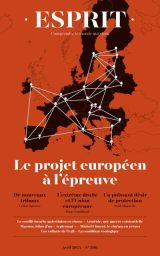
From dialectical materialism to neoliberalism, any politics that lays claims to the truth is both illusory and dangerous. But does this mean that democracy is simply rule by opinion, without recourse to facts? And does the rejection of absolute relativism mean abandoning the postmodernist critique of truth and power?
